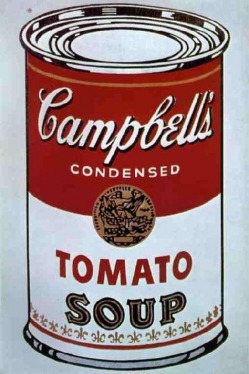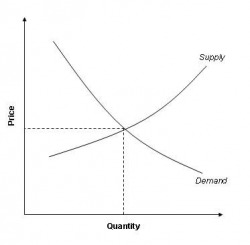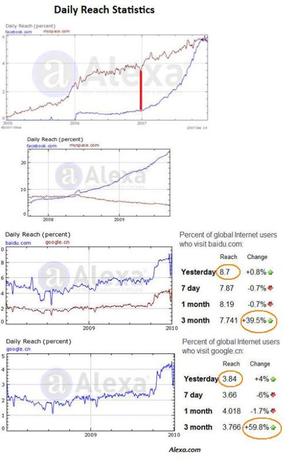In fact, looking at the profile of the content I consume, I already thought I was wrong and was behaving accordingly. Because if you look at the content I consume, nearly all of it is curated. TED Talks, Fora.TV, Big Think, Radiolab, This American Life, Flavorpill, Edge.org, lectures from Chicago Booth and LSE, books that are recommended by friends, industry-specific news digests, not to mention the slew of recommended content I get from Facebook, Twitter and email. I almost never go to the Digg-like sites. (I don’t even look at all the content sent by people close to me, e.g. heavy forwarders.)
The problem with classic curatorship, e.g. museums, is that a person or small group of people has inordinate power. It creates this “I know what art is (and you don’t)” dynamic. But competitive curatorship (alert – new term just coined; I googled it to make sure J) changes the dynamic by reducing the exclusivity factor. In truth, we need something like curatorship to protect us from information overload. Competitive curatorship, i.e. having a portfolio of curators that we curate ourselves, is the first-tier solution to the problem of filter failure. I choose my content from curators that I choose.
Which all makes sense and is workable. However, I’m starting to need a second-tier solution. Even the amount of content from my specially selected set of “curators” is growing too much for me to handle without being overwhelmed. I can imagine a platform that would allow me to overlay a social view on top of the recommendations from my curators, with the platform constantly analyzing my clicks and people (incl. friends but not necessarily) with similar tastes to offer me additional recommendations. The platform could also analyze how long I spent on different types of media and estimate how long it would take for me to absorb, only showing me as much content (in time) as I want to absorb. Perhaps one hour per day on weekdays, two hours on weekends.
Oh, if wishing made it so.
In a relevant aside, the LSE public lectures are all recorded and are quite long: http://www.lse.ac.uk/resources/podcasts/publicLecturesAndEvents.htm
Here are the ones I plan on watching (I would link but the website isn’t very well-constructed). I will note, however, that this is a terrible job of curatorship since I haven’t yet watched them and there are far too many lectures listed. This is probably a better artifact of my psychology and perhaps a lesson plan in headline-writing, than of curatorship.
Truly, I am just using this blog as a store for my list, but I may return at some later point and offer some more knowledgeable comments than I can provide now. But for now:
Dec 08, 2009 – The End of Lawyers? with Richard Susskind
Nov 26, 2009 - The Pleasures and Sorrows of Work with Alain de Botton
Nov 20, 2009 - In Conversation with Amartya Sen
Nov 10, 2009 - Rules of Evidence with Hilary Mantel
Nov 10, 2009 - The First Legacy Games: The Physical and Socio-Economic Transformation of East London
Oct 29, 2009 - Human Rights in the 21st Century with Noam Chomsky
Oct 21, 2009 - Predictioneer: How to Predict the Future with Game-Theory with Bruce Bueno de Mesquita
Oct 20, 2009 - Why I Grew to Love America and You Should Too with Justin Webb
Oct 15, 2009 - The Cocaine Wars: The Mess We're In and How to Get Out of It with Tom Feiling
Oct 06, 2009 - The Consolations of Economics with Tim Harford
Sep 24, 2009 - Developing Rural Areas with Esther Daflos
Sep 22, 2009 - Natural Resource Management with Paul Collier
Jul 27, 2009 - The Idea of Justice with Amartya Sen
Apr 30, 2009 - Gray's Anatomy: Thoughts on Politics, Religion and the Meaning of Life with John Gray
Apr 29, 2009 - Wars, Guns and Votes: Democracy in Dangerous Places with Paul Collier
Feb 18, 2009 - Thinking Like a Social Scientist: Public Economics and Pub Economics with Nicholas Barr
Feb 03, 2009 - Here Comes Everybody: How Change Happens When People Come Together with Clay Shirky
Nov 11, 2008 - Navigating Global Economic and Financial Change with Mohamed A El-Erian
Oct 20, 2008 - Gut Feelings: Shortcuts to Better Decision-Making with Gerd Gigerenzer
Oct 16, 2008 - Inhuman and Degrading Treatment: The Words Themselves with Jeremy Waldron
Oct 14, 2008 - Hot, Flat and Crowded with Thomas Friedman
May 12, 2008 - McMafia: Crime Without Frontiers with Misha Glenny
May 02, 2008 - Common Wealth: Economics for a Crowded Planet with Jeffrey Sachs
Mar 17, 2008 - Behavioural Economics: Common Mistakes in Daily Decisions with Dan Ariely
Feb 28, 2008 - Beyond the Banality of Evil with Steve Reicher
Feb 06, 2008 - The Logic of Life with Tim Harford
Jan 30, 2008 - Sleeping Beauty: Awakening the American Dream with Maurice Saatchi
Nov 06, 2007 - Popperian Pathways: The Demarcation Between Quack Cancer Cures and Scientific Remedies
Nov 06, 2007 - Judging the Booker Prize: What Concerns Novelists in English Today (and What Does Not)
Oct 18, 2007 - The Divergence of the Bottom Billion with Paul Collier
Oct 01, 2007 - In Conversation with Alan Greenspan








 RSS Feed
RSS Feed